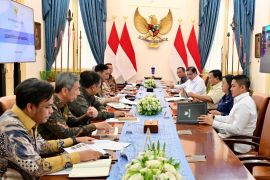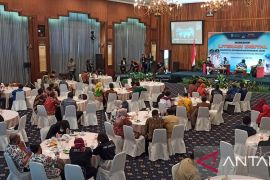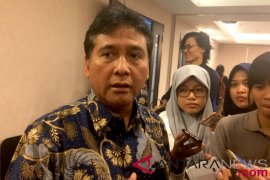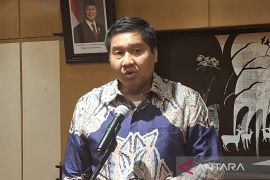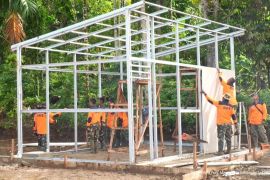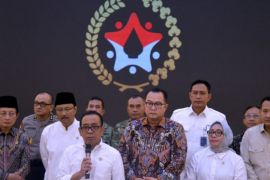This is a compromise that reflects common interests."Jakarta (ANTARA News) - The Indonesia Employers Association (Apindo) has hailed the newly-revised list of negative investment areas (DNI), which accommodates national as well as business interests.
"The DNI has already taken into account our national interests as well as both domestic and foreign interests," Apindos general chairman, Sofyan Wanandi, said here on Tuesday after a coordination meeting to finalize the list of businesses that are open with certain requirements of investment and those that are closed.
The conclusion entails the revision of the Presidential Regulation Number 36 of 2010 on DNI, especially the adoption of an article banning foreign investment in micro, small, and medium businesses, which are locally known as UMKM, in short.
"We have ably regulated the UMKM sector, which is 100 percent for us. In the batik, fish drying and all businesses, which are considered part of UMKM businesses, are closed for foreign investment. These businesses will be part of the DNI later," he emphasized.
Sofyan stated that in the interim, the revised DNI can invite foreign investors to participate in the improvement of the national logistical system, so that it becomes more efficient and effective. This will help in the development of national economy in the future.
"This is a compromise that reflects common interests. This is a package that can, after being ratified, offer legal certainty, and a better investment climate ahead of the new political year," he noted.
The government has assured that the revision of DNI will prioritize national interests in the framework of increasing national competitiveness and boosting both domestic and foreign investment.
The revision has made some business sectors more open for foreign investment, such as the operation of land terminals in the transportation sector and the pharmaceutical industry in the health sector, as well as the tourism, creative, economic, and financial sectors.
Meanwhile, some businesses have been made more restricted for foreign investment, such as the trade service, especially distribution system, cold storage, and warehousing. Regulations on foreign ownership have been made more harmonized, such as network operations in the communication and informatics sector.
The revision also regulates the licensing of foreign parties involved in public-private cooperation projects, in the provision of port facilities, terminal and airport supporting businesses in the transportation sector as well as toll roads and drinking water management in the public works sector.
The revision also offers a public-private ownership scheme in the procurement of electricity generators, transmission of electric power or the distribution of electricity and the reduction of ownership of foreign capital in the horticulture sector.
(Reporting by Satyagraha/H-YH/INE/KR-BSR/A014)
Editor: Priyambodo RH
Copyright © ANTARA 2013

